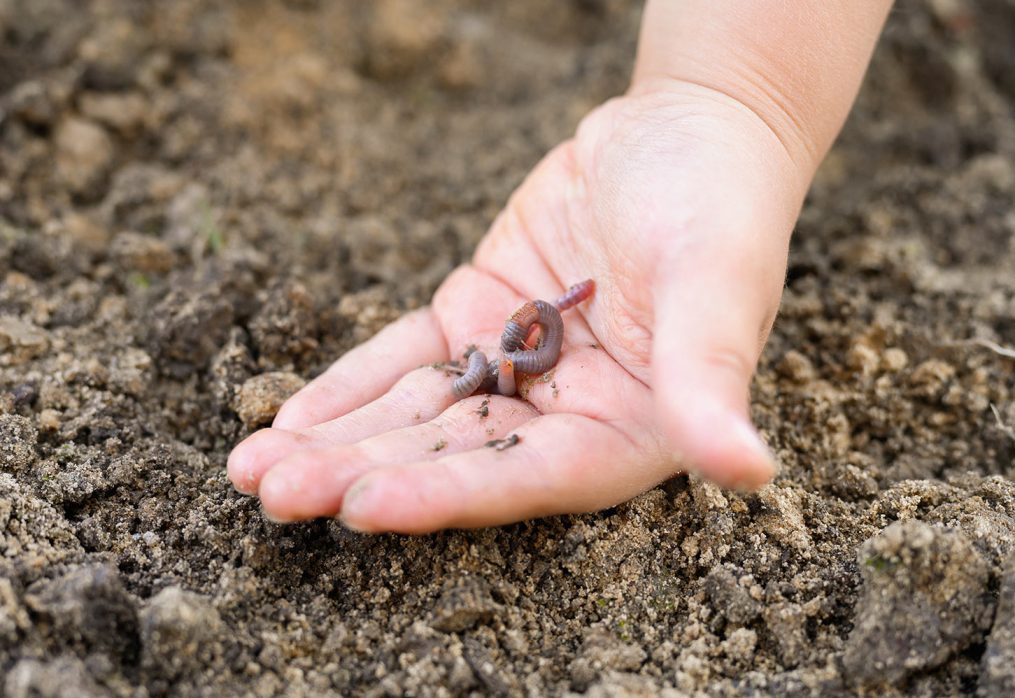You can make a difference
How you spend your money matters. where you buy your produce matters. Choose to support farmers and food producers that look after their soil health. It’s easy to do this:
- Buy grass-fed meats
- Buy organic
- Support the local farmer’s market
Dive a little deeper and ask your local farmers about how they care for their land and their animals.
For more information to assist your purchasing decisions on sustainable food, go to Sustainable Table. Sustainable Table is an environmental not-for-profit that provides Australians with the tools and information to make ethical consumption easier.
Show the soil some love
Compost at home
- Our food waste is food for the soil and the soil grows your food. It’s a circle of life!! Learn more about how great composting is via The Compost Story. This is a US-based resource but well-told (6 mins)
- Find out if your Council provides subsidised compost bins and provides a food waste collection.
- Join a share-waste group. Share-waste initiatives link donors of food waste to composters.
- Find out if your Council has a community compost hub.
- Once you have mastered your compost system, lobby for your local school to introduce composting, perhaps even volunteer to pass on your knowledge.
Grow a plant- Give a plant
- Start with one plant, then add a few more. Before you know it, you’ll be spouting green thumbs and a garden!
- Give a plant for a present. Think about replacing lolly bags at your children’s birthday parties with a plant (or give them both!)
Grow your food
Learn how to design your own Regenerative Garden in your backyard here This is a US-based resource providing great information (2 min). For more resources, Google “Create a Regenerative Garden”. You will find lots of brilliant information to get you started and to keep you inspired.
Watch “The Soil Story”
Watch, learn & spread the word about soil’s potential to sequester carbon. Kiss the Ground’s “The Soil Story.” It’s a story about soil, a story that can heal our earth.
Join a community garden or start your own
Community gardens offer a great place to learn, share, grow and socialise. Community garden members offer a wealth of knowledge and have a shared passion. Often the garden will buy bulk garden supplies.
Biochar
Biochar is a fantastic product for your garden. More information to come on Biochar; in the meantime, do quick research to get you started on the benefits of Biochar in your garden.
Let us all jump in and get involved in soil conservation in any small way you can, and you will be rewarded in so many ways!
Explore additional resources
Sourcing Matters: A US podcast (45 mins) that talks about the importance of regenerative agriculture to reverse climate change and improve soil health
For farmers and land managers
If you are a farmer or a land manager and are interested to reduce the chemical inputs onto your land or want to explore some of the ideas about farming in a regenerative way, there is help. It is a journey that only you can do on the landscape you are on, each farmer and land manager and land is different.
To get started.
- Get inspired by reading stories of how other farmers have changed their farming practices and have seen positive changes to their landscapes. Read Gabe Brown, Dirt to Soil. Very easy to read and a great foundation for the topic.
- Listen to the stories of farmers, their journey and their achievements. Go To the Resources page for short videos, books and podcasts on and by farmers who have begun the journey to farming regeneratively and how they got started.
- Just as each landscape is different and each farmer is different with different goals so each person’s journey will be different.
- Read Nicole Masters book, For the Love of Soil. She has heaps of practical advice on soil, what to focus on and approaches to take. At the end of the book Nicole provides an Appendix on Transition Steps- a guide for you to start your journey.
- Find a local group of like-minded farmers, supporting each other is essential for success and combined knowledge is very valuable.
- Research courses to take, Find a course that suit your needs. We have listed a couple here to start your investigation.
- Contact us. Soilweek Australia, and we will put you in touch with people who can help you to get started with a transition plan.
Go to the Resources Page
